The Distrest Poet
£550.00
William Hogarth
The Distrest Poet
London, J. & J. Boydell 1795
Copper engraving
360 x 410mm
£550
William Hogarth – The Distrest Poet
Hogarth’s satire on the impoverished hack poet / scribbler (thought to be a portrait of Pope’s butt Lewis Theobald) who is only concerned with his composition (labelled ironically Riches – A Poem) rather than the upkeep of his family and responsibilities.
Hogarth depicts the interior of a bare attic bedroom.
On the right the poet (dressed in a dressing gown because his wife is repairing his tattered breeches) is engaged in anguished composition, totally ignoring the angry landlady who had burst in through the door waving a long, unpaid account.
The poet’s pretty young wife sits before the fire sewing and looks up in dismay as the landlady erupts through the door.
In the four-poster bed in the background is a squalling baby, a cat feeds her kittens on the poet’s discarded coat (implying that she at least can feed her family), and a spaniel takes advantage of the distraction to steal a small joint of meat (the family’s meagre supper) from a chair by the door.
Above the door an open food cupboard is totally bare, linen hangs drying before the fire and above the poet’s head hangs a map inscribed A View of the Gold Mines of Peru, an indication that the family has lost their money through unwise speculation. Paulson 145 III/III.
William Hogarth
William Hogarth, (born November 10, 1697, London, England—died October 26, 1764, London), the first great English-born artist to attract admiration abroad, best known for his MORAL and satirical engravings and paintings—e.g., A Rake’s Progress (eight scenes,1733). His attempts to build a reputation as a history painter and portraitist, however, met with financial disappointment, and his aesthetic theories had more influence in Romantic literature than in painting.
You must be logged in to post a review.

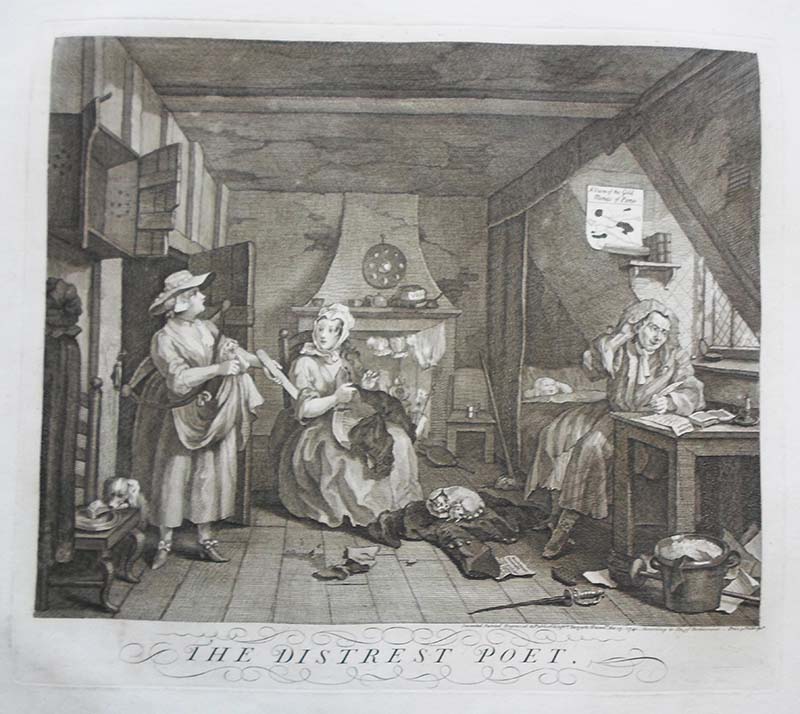
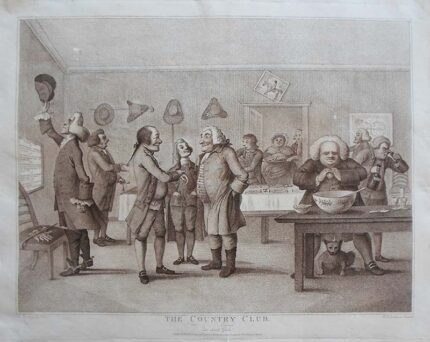
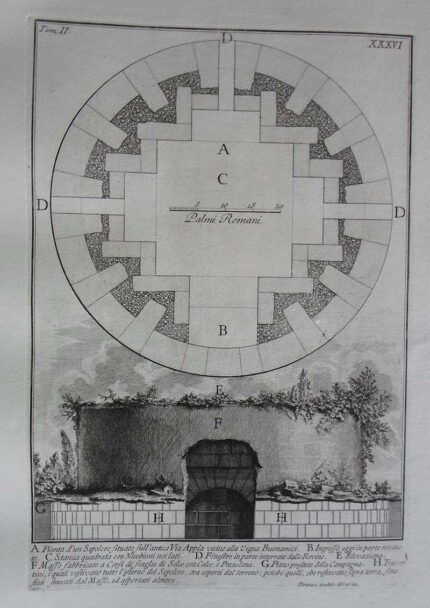
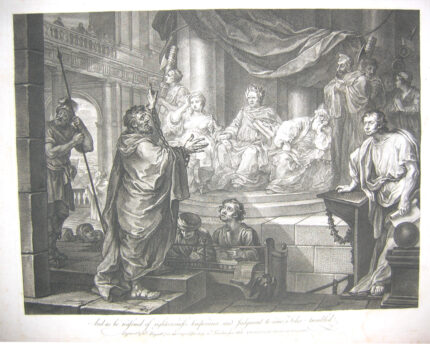
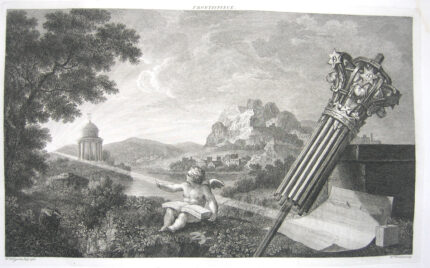
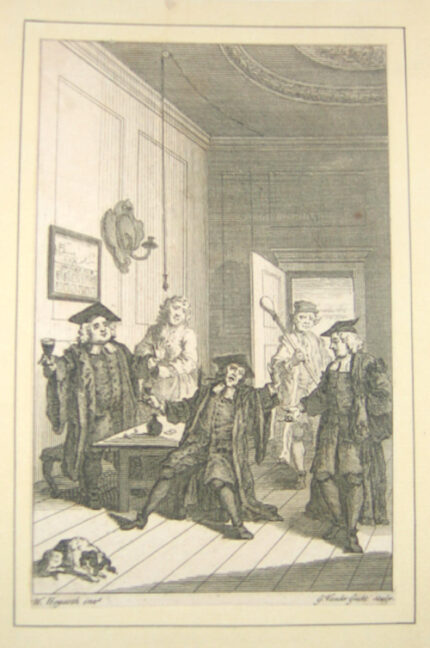
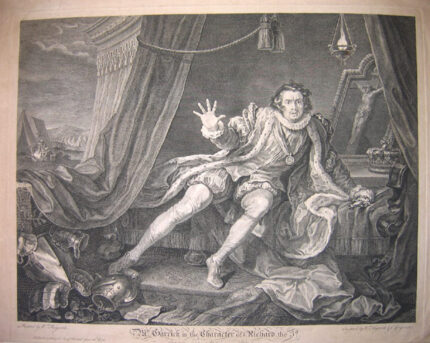
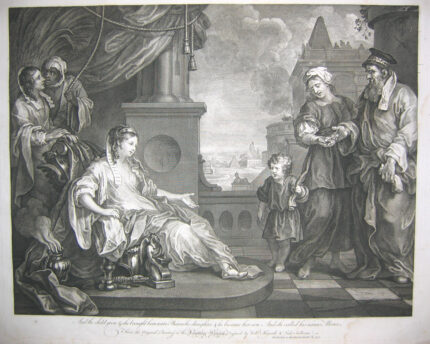
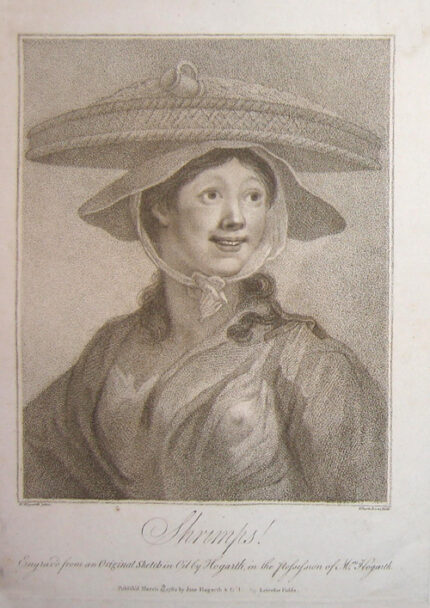
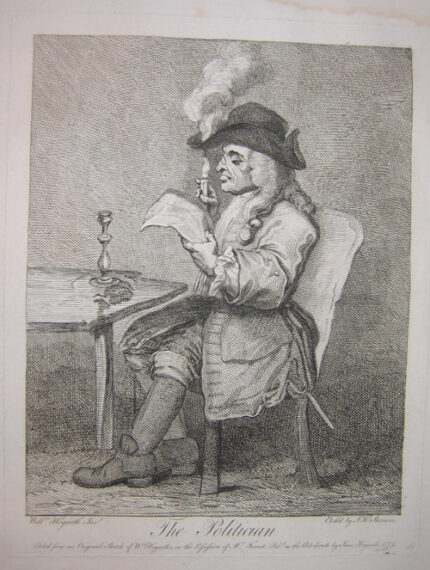
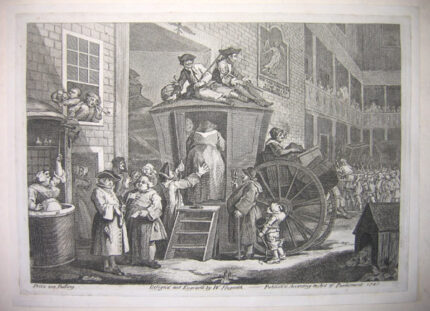










Reviews
There are no reviews yet.